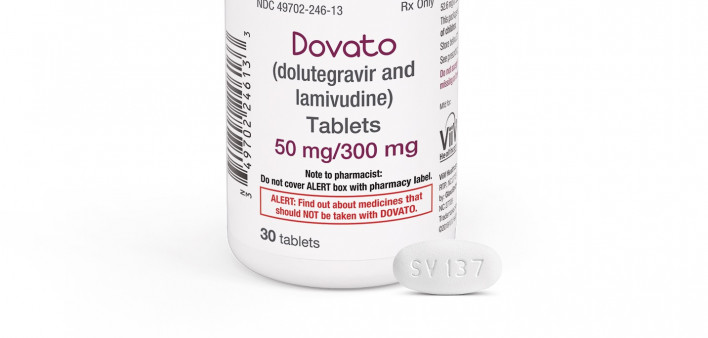Data from the midway point of a study of ViiV Healthcare’s Dovato (dolutegravir/lamivudine) suggests that the antiretroviral (ARV) regimen is a good option for treating people with HIV very soon after their diagnosis.
Researchers presented 24-week findings from the Phase IIIb multicenter, open-label, single-arm, 48-week proof-of-concept STAT study at the American Conference for the Treatment of HIV 2020. The study, which is being conducted in the United States, is evaluating the feasibility, efficacy and safety of Dovato in a rapid test-and-treat model of HIV care in 131 people newly diagnosed with the virus. The participants all started treatment with the two-drug regimen within 14 days of their diagnosis.
Shortly after diagnosis, the participants received testing for hepatitis B virus (HBV) and kidney function but received their first prescription for Dovato before getting the results of those tests.
In 2019, the Food and Drug Administration (FDA) approved Dovato to treat HIV among those starting ARV treatment for the first time if their virus has no known resistance to either of the drugs in the combination pill, dolutegravir and lamivudine. The FDA recently expanded that approval to include those switching from other ARV regimens who have a fully suppressed viral load.
Of the 111 participants for whom there were data available concerning their viral load 24 weeks into the study, 92% had a fully suppressed viral load. This includes the participants who remained on Dovato throughout that period and the eight people who wound up switching to a different ARV regimen.
Five of the people who switched regimens did so because they tested positive for HBV, while one person did so because drug resistance testing conducted just after diagnosis indicated that that person’s virus was resistant to lamivudine. (Lamivudine is active against HBV as well as HIV, but other such dually active ARVs treat hep B more effectively.)
There were 24-week viral load data available for five of the people who switched regimens. All of them had an undetectable viral load, and none saw their HIV develop resistance to treatment. Nor did any of the people with HBV see that virus develop resistance to treatment.
Eleven percent (15) of the participants had dropped out of the study by week 24, including 9% (12) who were lost to follow-up or withdrew their consent to participate and 2% (3) due to their physician’s decision.
Dovato was well tolerated after 24 weeks, with 2% (2) of the participants experiencing substantial drug-related adverse health events.
To read a press release about the study, click here.







Comments
Comments